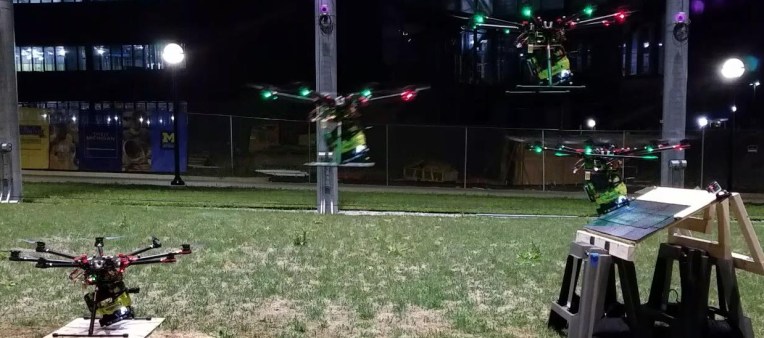The FAA has warned against equipping your drone with weapons such as flamethrowers and handguns. But can a nail gun really be considered a weapon — that is, outside of Quake? Let’s hope not, because roboticists at the University of Michigan have made a roofing drone that uses that tool to autonomously nail shingles into place.
In a video shot in UM’s special drone testing habitat, the craft flies up, approaches its bit of roof, and gingerly applies the nail gun before backing off and doing it a couple more times.
It’s very much just a tech demonstration right now, with lots of room to improve. For one thing the drone doesn’t use onboard cameras, but rather a system of static cameras and markers nearby that can tell exactly where the drone is and where it needs to go.
This is simpler to start with, but eventually such a drone should be able to use its own vision system to find the point where to touch down. Compared with a lot of the computer vision tasks being accomplished out there, finding the corner of a roof tile is pretty tame.
Currently the drone is also free flying and uses an electric nail gun; This limits its flight time to about 10 minutes and a few dozen nails. It would be better for it to use a tether carrying power and air cables, so it could stay aloft indefinitely and use a more powerful pneumatic nail gun.
Drones are already used for lots of industrial applications, from inspecting buildings to planting trees, and this experiment shows one more area where they could be put to work. Roofing can be both dull and dangerous, and rote work like attaching shingles may as well be done by a drone overseen by an expert as by that expert’s own hands.
The drone is the subject of a paper (“Nailed it: Autonomous roofing with a nailgun-equipped octocopter”) by UM’s Matthew Romano and others, submitted for the International Conference on Robotics and Automation later this year.
